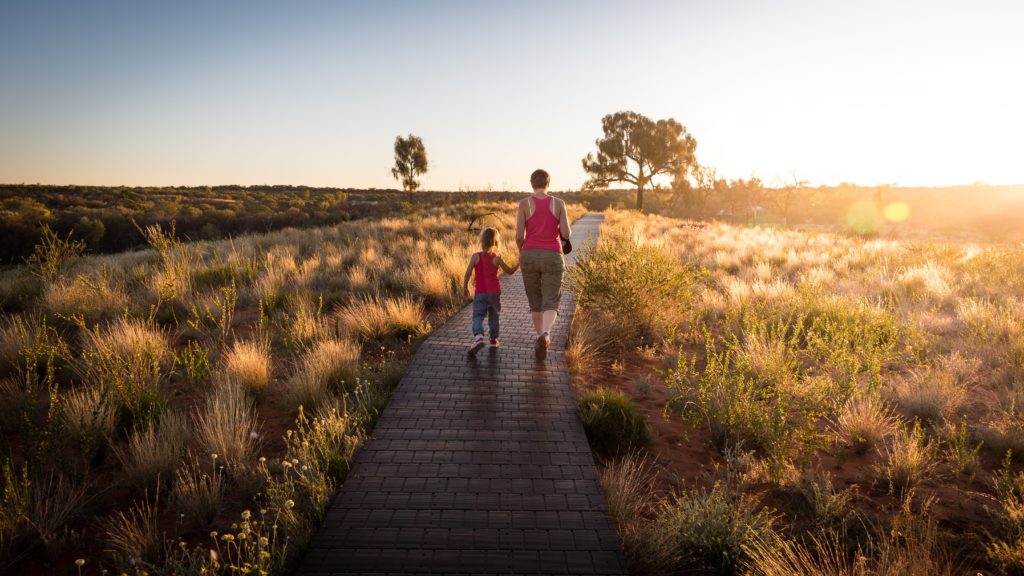
The coronavirus outbreak may be causing stress and anxiety for you. And it is likely that your children are also feeling some varying levels of anxiety due to disruptions in their lives and schedules. So how can you as a parent help your children process what they’re feeling when you might be struggling to make sense of it yourself?
Here’s a play-by-play of how to talk to your kids and help them cope, understand, and make the best of this unusual time.
Assess what they already know
Younger children may only have a vague understanding of this crisis. Some may believe it’s the best time of their lives, thinking, “Mom and dad, home all day to play with me.” More sensitive or older children may have a better understanding, and therefore, more anxiety. This serves as the jumping-off point for the conversation so that you don’t overwhelm your child with information. Find out what they’ve already heard, how they are feeling, and what questions they have before delving into facts, reassurance, and coping strategies.
Educate them
The next step is to provide age-appropriate information. For younger kids, give them only the facts that they can process. Older kids may be ready for more information, including data about the virus, studies on how it spreads and how to stay safe. The important thing is to be strategic. Think through ahead of time what your child can handle. For young children, it’s a great opportunity to discuss preventative measures, like hand washing to ensure they remain healthy.
Remind them that it’s OK to be scared
Anxiety is a part of life. This coronavirus pandemic is an unprecedented situation for us all, and it’s OK to feel scared or stressed about it. If your child is older and regularly on social media, keep in mind that these interactions may be adding to their fears. Carefully monitor what they’re reading and with whom they’re interacting, and talk to them about it.
When talking to your child, validate their feelings of anxiety as a normal response and thank them for sharing with you. Then, let your child know they are safe and supported in however they are feeling, and remind them that you are there to help.
Help them be part of the solution
Kids are amazingly resilient, creative and energetic – perfect traits to combat this virus. Inspire them to be part of the solution. At a minimum, remind them that the best way to protect yourself from coronavirus is by avoiding crowds and washing your hands. Encourage your child to take an active part in calming their own anxiety by practicing good hygiene.
But then, encourage them to dream bigger about ways they can help. Share with them about the brilliant scientists who are working hard every day to find a cure. Maybe it will inspire them to pursue a career in the field of biomedical research.
Tell them stories about the healthcare workers who are on the front lines fighting this virus. Discuss ways you can support these brave heroes. Be transparent (as appropriate) about how you and other family members are coping with social distancing. For example, say, “Grandma feels sad that she can’t see you right now.” Then spend time crafting presents and cards for grandma and make time for a video call.
Proactively engaging your kids in ways they can make a difference will shift their anxiety—and yours, too—from a negative thought process to a positive impact on our world.
Help them shift their focus from the things they can’t do to the cool perks of this shutdown. Wear pajamas all day? Great. Get to sleep in some days? Awesome. More time at home to do things they love, like playing outside, playing video games, reading and more? Score. This unique situation can offer more free time, special family togetherness, opportunities for creativity. Focusing on the positive is a conscious choice.
Take care of yourself, too
Remember the guidance about oxygen masks on an airplane? If the airplane loses cabin pressure, parents are supposed to put their oxygen masks on first before helping their kids. The lesson can be extended to this pandemic: you have to take care of yourself so that you are able to care for your kids.
Parents and caretakers are not immune from anxiety – in fact, they may even be more prone to it. With kids watching nearly everything their parents do, it can be hard to quell your own anxieties while supporting the rest of the family. If they see or hear you getting upset about something, they are likely to internalize your stress.
Dedicate some time to self-care so that your emotional needs are met as well. Maintain your health. Eating well, exercising, meditating, and getting plenty of sleep lay the groundwork for happy and healthy parenting. Ask for help from your partner or family members when you need it.
Take social media breaks. Constantly being exposed to the news will cause stress for anyone. Talk with others. Make the most of FaceTime and phone calls to connect with others and vent about your concerns. You could even ask friends for advice on how to remain calm and confident.
Together you and your kids will make it through this pandemic. Socially-distanced family togetherness offers you an ideal opportunity to connect with your children and hear and support them.
Ronald Lee, MD is a child and adolescent psychiatrist at Sheppard Pratt, and is service chief of the Adolescent Male Unit at Sheppard Pratt’s hospital in Towson.








